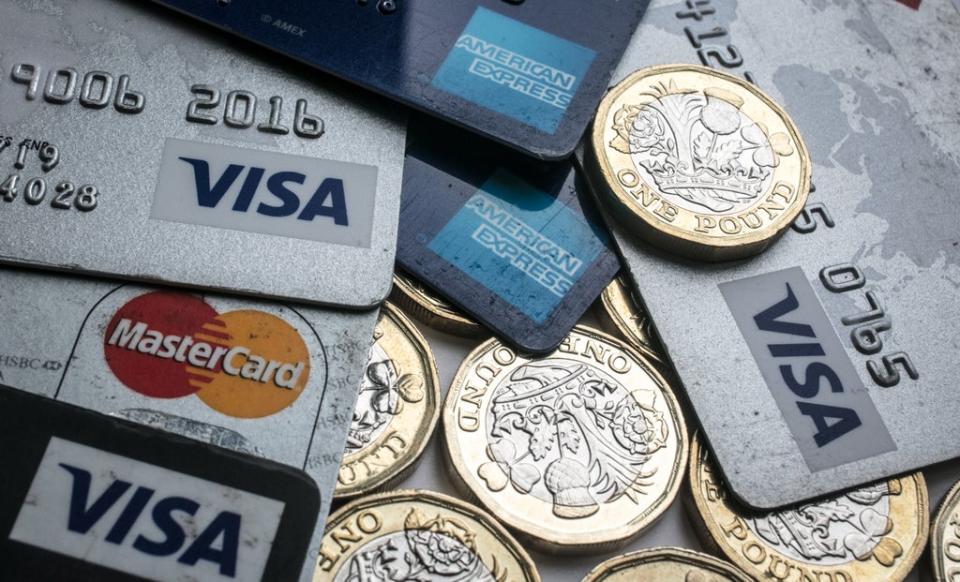How to get ahead in the race to save cash

Many of us will start 2022 wanting to turn over a new leaf financially but however well-intentioned, we might struggle to stick to new year resolutions – in fact, a study by Hargreaves Lansdown shows nine out of 10 resolutions are destined for failure.
This year, it’s going to be even more important to start on a strong footing, with warnings over massive hikes in energy bills on the horizon as well as all those Christmas money hangovers to deal with.
A raft of data shows last week was the culmination of a financial blow out of epic proportions – fuelled in no small part by the Covid-19 circumstances we find ourselves in yet again. This year, all the figures suggest we’ll have spent far more than we did in 2020.
Capital One reckons we’ll have spent £50bn on festivities in 2021, including hosting family and friends we couldn’t see last year. Whether any of us actually made it, with Omicron burning its way through the population, is another matter entirely. The money, though, has still been spent.
Luckily, there are lots of easy ways to save cash – and you don’t need to wait until Saturday to get on to it. Here’s how to get started.
1 Don’t borrow from the future
Many employers pay their employees early in December as a way to soften the blow of the additional holiday expense. But it’s a slippery slope and for many people January can feel like an extra long month for this reason alone. So take steps to pace yourself and make your pay cheque last.
2 Be smart with debt
The average amount of personal debt in 2021 is £25,879 – more than double the £9,246 reported in 2020 – according to figures from money.co.uk.
According to the Bank of England, the current average APR for UK credit cards is 21.4 per cent.
If you’ve got a credit card balance of £5,000 and repay just the bare minimum amount each month, it would take 32 years and two months to clear the balance – paying £7,955 in interest.
Transfer your credit card debt If you’re making large interest payments on credit card debt, it might make financial sense to move it all on to a zero per cent balance-transfer credit card deal.
These credit cards won’t charge any interest on transferred debts for a set period, giving you the opportunity to repay any money owed.
However, the interest tends to jump at the end of the promotional period, so make sure you pay off the balance in full before this happens.
3 Be clever with tax
You can keep hold of a bigger chunk of your earnings by claiming all the tax reliefs you’re entitled to – so long as you know where to look.
Reliefs such as the marriage allowance, rent-a-room relief and even working from home can soon add up.
Find out what you can claim here.
4 Cancel subscriptions you don’t use
If you’re finding it hard to save, see if you can make cutbacks to free up some spare cash.
For instance, two-fifths of us continue to pay for subscriptions we don’t use, worth £21 a month, according to website Topcashback.
So, take a thorough look at your bank statements and highlight any direct debits you’re unaware of, or subscriptions you no longer require.
5 Find your long-lost cash
There’s somewhere between £15bn and £77bn in unclaimed money sitting in forgotten investments, pensions and bank accounts.
If you think some of that cash could be yours, The Pension Tracing Service or Pensions Advisory Service can offer help in tracking it down.
If it’s shares in a company you think you’ve mislaid and can’t find the share certificates, check by applying direct to a company registrar such as Capita, Equiniti or Computershare.
A free online service called My Lost Account can help you trace any lost personal accounts, especially if the provider has closed or merged.
For lost child trust funds for children born between 2002 and 2011, of which there are more than a million, worth as much as £1bn, submit a request here.
Unclaimed Assets UK, which helps to trace lost money, estimates there is £2bn languishing in unclaimed life insurance.
6 Could you be winner?
More than £64m of Premium Bond prizes remain unclaimed, according to NS&I.
Check now to see if you’ve won some cash you didn’t know about.
The good news is that they are valid for ever – unlike lottery wins where you have only 180 days to claim – and if you register online, it also means you’ll never miss another prize. Check if you are due a pay out here.

 Yahoo Finance
Yahoo Finance 